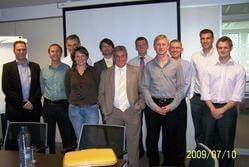Innovating and advancing the state of the art

Rather than merely prepare academic documents reviewing best practices across the different RENAISSANCE measures, the Project decided that State of the Art Clinics should be held. These clinics take the State of the Art Reviews further, promoting conversation around measures, mutual learning, and importantly supporting the filtering and adoption of best practice lessons emerging from the literature.
As part of the RENAISSANCE project, State of the Art Clinics were held on 9 - 10 July in Brussels. These Clinics form part of the State of the Renaissance Art Review, which plans to deliver a report on the Project’s development with regard to the implementation of the measures.The basis for the discussion was the State of the Art Briefing Papers. The papers review both the strengths and weaknesses of the measures and the opportunities and threats. While also addressing the target groups which the measures can impact (with specific regard to historic cities), and the business case for implementation. Key points regarding the implementation and future development of the measures were also raised. The main topics of the Clinics included, cycle hire schemes; city car clubs; awareness raising; public realm; bus stops environments and alternative fuels. Briefing papers on telematics strategies, urban planning processes and urban freight have also been prepared and circulated. The clinic was facilitated by MRC consultancy and was attended by representatives from the cities of Szczecinek (Poland), Perugia (Italy) and Bath (U.K). A number of internal nationally and internationally recognised experts attended the clinics, providing useful input for the further implementation of the RENAISSANCE measures. Particularly for cities that are not as advanced or experienced in developing sustainable transport.
Author: Adam Wyszomirski








